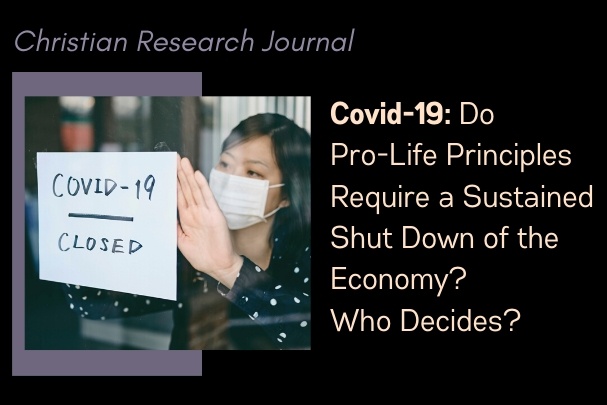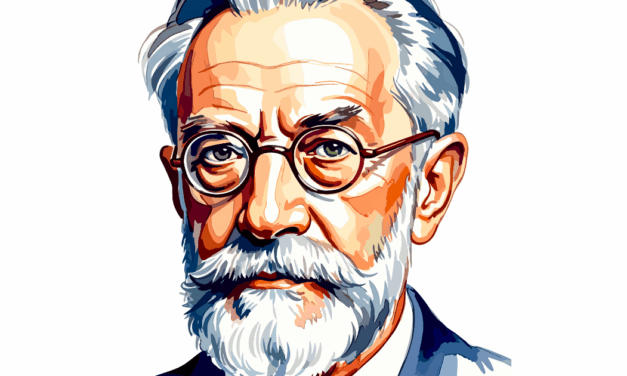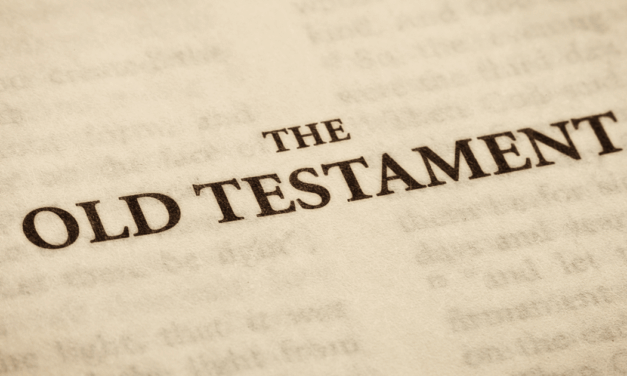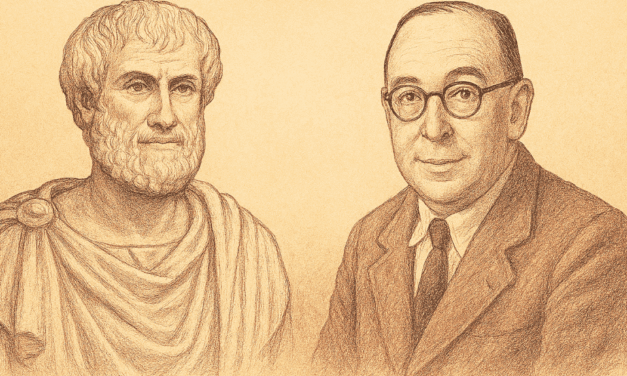Viewpoint articles address relevant contemporary issues in discernment and apologetics from a particular perspective that is usually not shared by all Christians, with the intended result that Christians’ thinking on that issue will be stimulated and enhanced (whether or not people end up agreeing with the author’s opinion).
When you to subscribe to the JOURNAL ,you join the team of print subscribers whose paid subscriptions help provide the resources at equip.org that minister to people worldwide. These resources include our free online-exclusive articles, such as this review, as well as our free Postmodern Realities podcast.
Another way you can support keeping our resources free is by leaving us a tip. A tip is just a small amount, like $3 or $5, which is the cost for some of a latte, lunch out, or coffee drink. To leave a tip, click here.
COVID-19 is the disease caused by SARS-CoV-2, a particularly dangerous form of the coronavirus. Thus far, more than 35,000 Americans have died from COVID-19 and it will get worse.1 Just how much worse remains to be seen. There are too many unknowns. Some medical experts predict millions of deaths worldwide unless we lockdown society and enforce strict social distancing for 12 to 18 months.2 Others say those projections are not only wrong, they’re overstated “by orders of magnitude.”3 Problem is, existing figures may not tell us to what extent COVID-19 causes death. Many people who die from it have underlying health conditions.4 Without knowing roughly how many Americans develop COVID-19 and recover (or carry SARS-CoV-2 but never get sick) versus how many get sick and die from it, predicting how it will play out is difficult.
Given these unknowns, how should pro-life Christians respond to COVID-19? Do doctors have a corner on how we structure society in light of a pandemic, or do we need voices beyond the hard sciences? Are pro-life advocates who question a prolonged economic lockdown trading lives for profits, thus undermining their core principles? When I raised these questions in an online exchange, a respected pro-life colleague replied, “Doctors know medicine better than we do, better than economists do. Life above profits!”
Is it really that simple? One thing is clear: Almost without notice, somebody moved the goalposts. A month ago, we were told a temporary shutdown of the economy was required to “flatten the curve” and slow transmission of the virus. If we didn’t, millions of sick Americans would overwhelm our hospitals and break the system. That made sense to many Americans. However, when models predicting that dire result were proven wrong, the ground rules changed. Now, instead of a brief shutdown aimed at slowing transmission, we’re told that we are morally obligated to extend economic lockdowns indefinitely until we beat the virus itself and no one is in danger.5
Russell Moore of the Ethics and Religious Liberty Council writes in the New York Times that pro-life Christians must abandon any consideration of the economy and remain sheltered-in-place as long as lives are at risk. “Each human life is more significant than a trillion-dollar gross national product. Stocks and bonds are important, yes, but human beings are created in the image of God.” We cannot rev up the cash registers “when the elderly, the disabled, the poor, and the vulnerable are in peril before our eyes.” We can go back to work only when doing so will not kill the vulnerable.6
Emily Hunter McGowin, assistant professor of theology at Wheaton College, is even more blunt in a March 24 Facebook post. “Some are suggesting our nation stop life-saving shelter-in-place measures and intentionally permit the suffering and death of elderly and other at-risk people for the sake of ‘saving the economy.’ I know no other way to describe this moral calculus than totally depraved. It is the culture of death epitomized, the diseased fruit of a seared collective conscience, from which we should beg to be delivered. Lord, have mercy.”7
Each of these responses poisons the well. McGowin, in particular, attributes to her opponents the worst possible motives. Are pro-life Christians concerned about the economy so depraved and heartless that we’ll intentionally risk Granny’s life to protect our 401(k)s? True, applied to COVID-19, the precautionary principle says we should act to minimize the probability of an extreme catastrophic result — in this case, the widespread loss of life — and do all we can to bring that probability as close to zero as possible. Shelter-in-place directives aimed at curbing the virus are consistent with that principle. But as philosopher Robert C. Koons warns, the precautionary principle points more than one direction — contra Moore and McGowin. Shutting down an entire nation for a prolonged period of time and destroying its economy can have a catastrophic impact on the common good, resulting in deaths from civil unrest, delayed non-COVID-19 medical procedures, drug and alcohol abuse, and suicide — to name a few. That probability should also be brought as close to zero as possible.8
“Life above profits” fails to account for this complexity in the precautionary principle and thus presents a false choice. Pro-life advocates concerned about the economy are not callously choosing money over people. They’re asking how we can save lives and preserve the common good given the pandemic we’ve been dealt. Is an indefinite shutdown of an entire society the best way to do that? Doctors don’t hold a trump card on that question. And yet that is precisely the danger we face. Medical professionals who would never allow experimental cures until they are fully tested are quite willing to step outside their field of expertise and demand untested and draconian economic policies that harm vulnerable Americans and impoverish the nation.9 Profits lift millions out of poverty and give us the resources to fight disease in the first place. Indeed, our economy is delicate and interconnected in ways not subject to central planners who unilaterally dictate what is and is not “essential.” As philosopher Lydia McGrew points out, “A ban on the sale of garden mulch affects (ultimately) a hospital’s ability to provide pay to a doctor treating Covid19 patients.” A failure to recognize this interconnectedness is a danger to human life.10
Absent a fuller understanding of the precautionary principle, “life over profits” is a slogan, not an argument. It’s application to the real world results in absurdity. Should we ban driving to work because we value life over profits? After all, 38,000 Americans die each year in car wrecks. Staying home is almost always safer than venturing out to provide for my family. If “pro-life” means we never do anything economically that risks human life, we can never end the current shutdown. No matter where we ease economic restrictions, we will, at that point, unintentionally put certain vulnerable people at risk. But the long-term alternative is worse.
Who Decides?
During a March 26 webinar, Michigan governor Gretchen Whitmer refused to say when the state would reopen. “As long as all the science continues to point towards social distancing being the most important thing that we can do, we’re going to have to continue that stay-at-home order.”11
Just what that science is can change month to month. On January 21, Dr. Anthony Fauci — the Brooklyn physician and infectious disease expert leading the U. S. response to COVID-19 — appeared on television to assure the American public that the Wuhan Virus was of no concern. “This is not a major threat to the people of the United States and this is not something the citizens of the United States right now should be worried about.”12
As late as February 17 — with COVID-19 cases popping up in several countries — Fauci once again assured the American people they had nothing to fear. The danger, he told USA Today, was “miniscule.”13 Viewers should worry more about the annual flu than the Wuhan Virus.
By early March, the alleged threat was anything but “miniscule.” Fearing the virus would overwhelm hospitals and exhaust the supply of respirators, government officials began shutting down the country and sent a thriving economy into a flaming tailspin. On March 29, Fauci told Americans to prepare for over a million infections and 100,000 to 200,000 deaths nationally.14 As the shutdown progressed, entire industries were wiped out or severely crippled. The speed and scale of the job losses were staggering. In a two-week period alone, ten million Americans lost their jobs.15 “‘What usually takes months or quarters to happen in a recession is happening in a matter of weeks,’ said Michelle Meyer, chief U. S. economist for Bank of America Merrill Lynch.” Thus, the New York Times says, “Many economists expect a decline in gross domestic product that rivals the worst periods of the Great Depression.”16
In my hometown of Atlanta, Delta Airlines — the nation’s largest air carrier — projected a slash of 85 percent of its capacity,17 and at last count, 35,000 employees are on unpaid leave of absence.18 And just when you thought it couldn’t get worse, a study from the Federal Reserve Bank in St. Louis estimates coronavirus job losses could total 47 million with an unemployment rate of 32 percent.19
In the face of these catastrophic losses and threat to the common good, Dr. Fauci told NBC’s Today Show, “I know it’s difficult, but we’re having a lot of suffering, a lot of death. This is inconvenient from an economic and a personal standpoint, but we just have to do it.”20
Fauci’s tunnel vision here is breathtaking. Forty-seven million unemployed Americans facing financial ruin is not an inconvenience. It’s a disaster! If sustained, it will turn the U. S. into a poor country. Poor countries have poor health and more people die of preventable diseases. In Yale News, Karen N. Peart reports, “In the largest study of its kind on mortality patterns in Europe and the United States, a Yale researcher found a direct correlation between unemployment and mortality.” High unemployment increases mortality and low unemployment decreases it. “‘Economic growth is the single most important factor relating to length of life,’ said principal investigator M. Harvey Brenner, visiting professor in the Global Health Division of the Department of Epidemiology and Public Health at Yale School of Medicine. ‘Employment is the essential element of social status and it establishes a person as a contributing member of society and also has very important implications for self-esteem,’ said Brenner. ‘When that is taken away, people become susceptible to depression, cardiovascular disease, AIDS and many other illnesses that increase mortality.’”21
Suicide is correlated to unemployment. Forty thousand Americans took their lives during the Great Depression, most of them men.22 Men, more than women, define their self-worth by their occupations and ability to make money. “Failure in the primary adult male role (economic success) is more visible and obvious” than in women, writes Steve Stack of Wayne State University. “Males are more likely to feel like failures in their primary role and therefore are more likely to suicide.”23
After the financial crisis of 2008, Carlos Nordt and colleagues at the University of Zurich explored the link between increases in rates of unemployment and suicide. They attribute one in five suicides a year worldwide to unemployment.24 Meanwhile, a 20-year prospective study of psychiatric outpatients concluded that unemployment was the most evident social factor impacting suicide risk and that whenever possible, patients with a mental disorder should be employed.25
WANE-TV in Fort Wayne reports that two weeks after Indiana Governor Eric Holcomb issued a stay-at-home order, helplines within the state observed a rise in adverse mental health symptoms, even for those with no history of mental illness. Addiction hotlines usually get 20 calls a week; right now they are getting 20 calls a day. Gambling calls have jumped from 30 a month to more than 220 a week; and the resource hotline 2-1-1 has gone from answering about 1,000 calls in a day to answering 25,000 calls in a day. “This slowly unfolding, constantly changing, life and livelihood-disrupting crisis is unlike anything we have ever seen and is going to cause many people to experience increased anxiety and depression,” said Dr. Jennifer Sullivan with the Indiana Family and Social Services Administration. She said those battling addictions will find the shutdown particularly stressful.26
“Stressful” may not be the half of it. With recovery meetings banned during the shutdown, addiction experts warn of a “national relapse trigger” as millions of Americans struggle to stay sober on their own. Absent their support networks, recovering addicts are prone to depression and self-medication from drugs and alcohol. “I’m hard-pressed to think of a bigger relapse trigger than what we’re going through now as a country,” said Dr. Tim K. Brennan, Director of the Addiction Institute at Mount Sinai West in New York.27
Ironically, the very economic shutdown aimed at saving our hospitals is now putting them out of business. According to Altarum, a non-profit research firm, 43,000 health care workers have been laid off since the coronavirus outbreak. The economic crisis is forcing hospitals to furlough staff “at the very moment they are most needed.” Hospitals everywhere are taking “huge revenue losses as they postpone elective surgeries and other routine care” in order to comply with the shutdown. “Some hospitals expect to lose half their income, and the top industry trade groups have warned that hundreds of hospitals could close after this crisis.”28
Locking down the economy to what experts deem “essential services” endangers vulnerable human beings and raises a host of troubling questions. To what extent do sustained unemployment and increased poverty endanger human life and undermine the rule of law? As families go hungry, how many lives will be lost to civil unrest? What will happen to our institutions that help restrain evil — political, social, and religious? Will the destruction of personal income lead to more deaths from drug and alcohol abuse? How will massive unemployment impact mental health?
At times, Fauci seems oblivious to these concerns. He told CNN’s Anderson Cooper that he doesn’t understand why every state hasn’t issued stay-at-home orders and perhaps a national quarantine is needed to force compliance.29 Elsewhere, he said we should relax social distancing only when there are no more deaths and no more infections.30
How long might that be? By all accounts, a vaccine is at least a year away. Meanwhile, how many lives will be harmed or lost due to an economic collapse?
Physicians are indeed qualified to tell us how COVID-19 impacts the human body and what medical treatments bring healing. However, they are no more qualified than anyone else to say how we should structure society in the face of a pandemic. That is a philosophical question medical professionals are not equipped to unilaterally answer through the narrow lens of their own profession. They need the help of economists, entrepreneurs, philosophers, theologians, historians, and law enforcement — to name a few.
Trading Lives for Profits?
Pro-life advocates argue that it’s wrong to intentionally kill innocent human beings, and policies permitting it are scandalous. That core principle is non-negotiable, even when suspending it might profit us in a pandemic. To cite an example, when congressional Democrats called on the Trump administration to lift federal funding restrictions on destructive fetal tissue research on grounds it might cure COVID-19, pro-life advocates — acting on their core principle — universally opposed the Democratic proposal.31 Their argument was clear and to the point: We must never intentionally kill innocent human beings so others can profit. We must pursue the cure of disease in morally acceptable ways.
While we must never intentionally kill innocent human beings, in practice we allow for tradeoffs where the risk of death is foreseen but not intended. These tradeoffs are unavoidable in the pursuit of other intrinsic goods. For example, electricity saves lives and powers our appliances, but each year 400 people die from electrocution and thousands more are injured. 32 Worldwide, car wrecks kill 1.5 million people a year, many of them in poor countries. That’s 3,700 deaths each day!33We could save hundreds of thousands of lives if we enforced a 25-mph speed limit, but we don’t. Is that because we’re playing a game of “Lifeboat” where we arbitrarily decide who lives and dies based on economic worth? No, we recognize that speedy and efficient transportation leads to a higher standard of living for everyone. We accept these tradeoffs all the time.
“Pro-life” means we will never sanction the intentional killing of innocent human beings. It does not mean that the preservation of life is the only intrinsic good we should pursue. If it were, our decisions would be much simpler: just do what contributes to length of life and eschew anything that doesn’t. But that may not lead to the best, or even a good, outcome.
Suppose I’m an impoverished 35-year-old farmer with six kids and a wife living in rural Georgia. My kids are poorly educated and will never attend college or travel. We scrape by selling peanuts and sweet corn. On the plus side, life expectancy in our county is 83 years. There is almost no crime and we are healthy, thanks to remarkably clean air and the non-processed foods we produce. Then, out of the blue, Morgan Stanley offers me a consulting job in Manhattan. It seems the company wants to reach farmers with investment strategies and needs insider help. My starting salary will be $250,000 annually and the company will secure housing in a nice Long Island neighborhood with excellent schools. My family will flourish in a local church with excellent Bible teaching and a large youth group. On weekends, I can take my wife out to dinner, something I haven’t done for years. We can travel! And my kids can go to college! There’s only one problem: physicians report that life expectancy on Long Island averages two years less than rural Georgia due to air quality. All other things being equal, if I move my family, have I wrongly traded lives for profits? No. Although I foresee shorter life spans, I do not intend them. I accept the potential tradeoff on my life expectancy for the sake of other intrinsic goods, such as educating my kids, providing for my family, and Christian fellowship.
Absent important qualifiers, “life over profits” is moralistic reductionism masquerading as biblical ethics. Seen holistically, “profits” are not just about money. Rather, wrapped up in our economic considerations are clusters of intrinsic goods, such as educating our children, providing for our families, giving to charity, building up our marriages, and pursuing Christian fellowship — all of which contribute to the common good.
Market economies give us the resources to heal those made in God’s image. Their essence is not greed, but wealth creation. When they’re grounded in the rule of law and suffused with a rich moral culture, no real world alternative comes close to lifting people out of poverty and improving life expectancy. Sanctimoniously trashing them with a false narrative about lives versus profits plays well on social media, but it’s cold comfort to millions of unemployed and impoverished Americans who will fall asleep tonight worried about feeding their families tomorrow.
Lord, have mercy.
Scott Klusendorf is president of Life Training Institute and holds an MA in Christian apologetics from Biola University.
NOTES
- “Cases of Coronavirus Disease (COVID-19) in the U.S.,” Centers for Disease Control and Prevention, last accessed April 19, 2020, https://www.cdc.gov/coronavirus/2019-ncov/cases-updates/cases-in-us.html. All other cited URLs in this article were accessed April 17, 2020.
- Tim Hains, “Ezekiel Emanuel: U. S. Must Stay Locked Down For 12–18 Months Until There’s A Vaccine,” Real Clear Politics, April 7, 2020, https://www.realclearpolitics.com/video/2020/04/07/ezekiel_emanuel_us_must_stay_locked_down_for_12-18_months_until_theres_a_vaccine.html.
- “Is the Coronavirus as Deadly as They Say?” Stanford, March 25, 2020, https://fsi.stanford.edu/news/coronavirus-deadly-they-say.
- Nick Triggle, “Coronavirus: How to Understand the Death Toll,” BBC, April 1, 2020 https://www.bbc.com/news/health-51979654.
- Rick Noac, John Wagner, et al., “As U. S. Death Toll Surpasses 4,600, Fauci Says the Real Turning Point in Coronavirus Mitigation Won’t Happen Until There’s a Vaccine,”Washington Post, April 1, 2020, https://www.washingtonpost.com/world/2020/04/01/coronavirus-latest-news/. Cf. Today Show, April 2, 2020, Tommy Christopher, “WATCH: Dr. Anthony Fauci Agrees There Should Be National Coronavirus Stay-at-Home Order,” Media-ite, April 2, 2020, https://www.mediaite.com/news/watch-dr-anthony-fauci-agrees-there-should-be-national-coronavirus-stay-at-home-order/.
- Russell Moore, “God Doesn’t Want Us to Sacrifice the Old,” New York Times, March 26, 2020, https://www.nytimes.com/2020/03/26/opinion/coronavirus-elderly-vulnerable-religion.html.
- Emily Hunter McGowen, Facebook post, March 24, 2020, https://www.facebook.com/permalink.php?story_fbid=10105835351410883&id=9219226.
- Robert C. Koons, “Can We Measure the Value of Saving Human Lives in Dollars? Somber Calculations in a Time of Plague,” The Public Discourse, March 31, 2020, https://www.thepublicdiscourse.com/2020/03/61900/.
- Rob Koons, Facebook post, April 7, 2020, https://www.facebook.com/robkoons/posts/10115212549405920; Lydia McGrew, Facebook post, April 7, 2020, https://www.facebook.com/lydia.mcgrew.5/posts/10163238851900640?comment_id=10163238949200640&reply_comment_id=10163239036795640. See also Koons, “Can We Measure the Value of Saving Human Lives in Dollars? https://www.thepublicdiscourse.com/2020/03/61900/.
- Lydia McGrew, Facebook post, April 7, 2020. https://www.facebook.com/lydia.mcgrew.5/posts/10163238851900640?comment_id=10163238949200640&reply_comment_id=10163239036795640. McGrew’s claim is borne out as noted in footnote 28 below.
- Lauren Gibbons, “Five Takeaways from Michigan Gov. Gretchen Whitmer’s Coronavirus Town Hall,” MLive, April 9, 2020 (updated), https://www.mlive.com/public-interest/2020/04/five-takeaways-from-michigan-gov-gretchen-whitmers-coronavirus-town-hall.html.
- Fauci appeared on NewsMax, January 21, 2020, YouTube, April 3, 2020, https://www.youtube.com/watch?v=kD-xBdMKiSQ. It was also reported on “Tucker Carlson Tonight, Fox, April 3, 2020, https://video.foxnews.com/v/6147033370001#sp=show-clips.
- Jayne O’Donnell, “Top Disease Official: Risk of Coronavirus in U.S. Is ‘Minuscule,’ Skip Mask and Wash Hands,” USA Today, February 18, 2020, MSN, https://www.msn.com/en-us/news/us/top-disease-official-risk-of-coronavirus-in-us-is-minuscule-skip-mask-and-wash-hands/ar-BB1068XR.
- Reported by Chicago Tribune tweet, March 29, 2020, Twitter, https://twitter.com/chicagotribune/status/1244269583365820417.
- “Small Business-Relief ‘a Mess,’” New York Times, April 2, 2020, https://www.nytimes.com/2020/04/02/business/stocks-today-coronavirus.html.
- “Small Business-Relief ‘a Mess,’” https://www.nytimes.com/2020/04/02/business/stocks-today-coronavirus.html.
- John Laughter, Delta Flight Operations Employee Memo: “Charting Our Path Through COVID-19,” April 2, 2020.
- Tracy Rucinski, “Delta Says 35,000 Workers Taking up Voluntary Unpaid Leaves, Still Seeking More,” Reuters, April 9, 2020, https://www.reuters.com/article/us-health-coronavirus-delta-air/delta-says-35000-workers-taking-up-voluntary-unpaid-leaves-still-seeking-more-idUSKCN21S00W.
- Miguel Faria-e-Castro, “Back-of-the-Envelope Estimates of Next Quarter’s Unemployment Rate,” Federal Reserve Bank of St. Louis, March 24, 2020, https://www.stlouisfed.org/on-the-economy/2020/march/back-envelope-estimates-next-quarters-unemployment-rate, reported by Jeff Cox, “Coronavirus Job Losses Could Total 47 million, Unemployment Rate May Hit 32 Percent, Fed Estimates,” CNBC, March 30, 2020, https://www.cnbc.com/2020/03/30/coronavirus-job-losses-could-total-47-million-unemployment-rate-of-32percent-fed-says.html.
- Today Show, April 2, 2020, Tommy Christopher, “WATCH: Dr. Anthony Fauci Agrees There Should Be National Coronavirus Stay-at-Home Order,” Media-ite, April 2, 2020, https://www.mediaite.com/news/watch-dr-anthony-fauci-agrees-there-should-be-national-coronavirus-stay-at-home-order/.
- Karen N. Peart, “Rising Unemployment Causes Higher Death Rates, Yale Researcher Shows,” Yale News, May 23, 2002, https://news.yale.edu/2002/05/23/rising-unemployment-causes-higher-death-rates-new-study-yale-researcher-shows.
- Elizabeth Macbride, “Suicide and the Economy,” The Atlantic, September 26, 2013, https://www.theatlantic.com/health/archive/2013/09/suicide-and-the-economy/279961/.
- Quoted in Macbride, “Suicide and the Economy,” https://www.theatlantic.com/health/archive/2013/09/suicide-and-the-economy/279961/.
- Cited in Ian Cummins, “The Link Between Unemployment and Suicide,” World Economic Forum, February 13, 2015, https://www.weforum.org/agenda/2015/02/the-link-between-unemployment-and-suicide/.
- G. K. Brown, A. T. Beck, R. A. Steer, et al. “Risk Factors for Suicide in Psychiatric Outpatients: a 20-Year Prospective Study,” Journal of Consulting and Clinical Psychology 68 (2000): 371–7, https://www.ncbi.nlm.nih.gov/pubmed/10883553.
- Britt Salay, “COVID-19 Stress Affecting Hoosier Mental Health,” WANE-TV, April 3, 2020, https://www.wane.com/top-stories/covid-19-stress-affecting-hoosier-mental-health/.
- Jan Hoffman, “With Meetings Banned, Millions Struggle to Stay Sober on Their Own,” New York Times, March 26, 2020, https://www.nytimes.com/2020/03/26/health/coronavirus-alcoholics-drugs-online.html.
- Dylan Scott, “Hospital Are Laying Off Workers in the Middle of the Coronavirus Pandemic,” Vox, April 8, 2020, https://www.vox.com/2020/4/8/21213995/coronavirus-us-layoffs-furloughs-hospitals.
- CNN Town Hall on Coronavirus, April 2, in Paul LeBlanc, “Fauci: ‘I Don’t Understand Why’ Every State Hasn’t Issued Stay-at-Home Orders,” CNN, April 3, 2020, https://www.cnn.com/2020/04/02/politics/fauci-stay-home-coronavirus-states-cnntv/index.html.
- “Tucker Carlson: Dr. Anthony Fauci Is Suggesting ‘National Suicide’ and ‘We Should Never Let Someone Like That Run This Country,’” Media Matters for America, April 3, 2020, https://www.mediamatters.org/tucker-carlson/tucker-carlson-dr-anthony-fauci-suggesting-national-suicide-and-we-should-never-let. See also, Noac, Wagner, et al., “As U. S. Death Toll Surpasses 4,600, Fauci Says the Real Turning Point in Coronavirus Mitigation Won’t Happen Until There’s a Vaccine,” https://www.washingtonpost.com/world/2020/04/01/coronavirus-latest-news/.
- Christina Marcos, “House Democrats Call on Trump Administration to Lift Restrictions on Fetal Tissue for Coronavirus Research,” The Hill, April 6, 2020, https://thehill.com/homenews/house/491455-house-democrats-call-on-trump-administration-to-lift-restrictions-on-fetal.
- Michael R. Zemitis, Lisa A. Foris, et al., “Electrical Injuries,” National Center for Biotechnology Information, November 16, 2019, https://www.ncbi.nlm.nih.gov/books/NBK448087/.
- “Road Traffic Injuries and Deaths — A Global Problem,” Centers for Disease Control and Prevention, December 18, 2019, https://www.cdc.gov/injury/features/global-road-safety/index.html.








